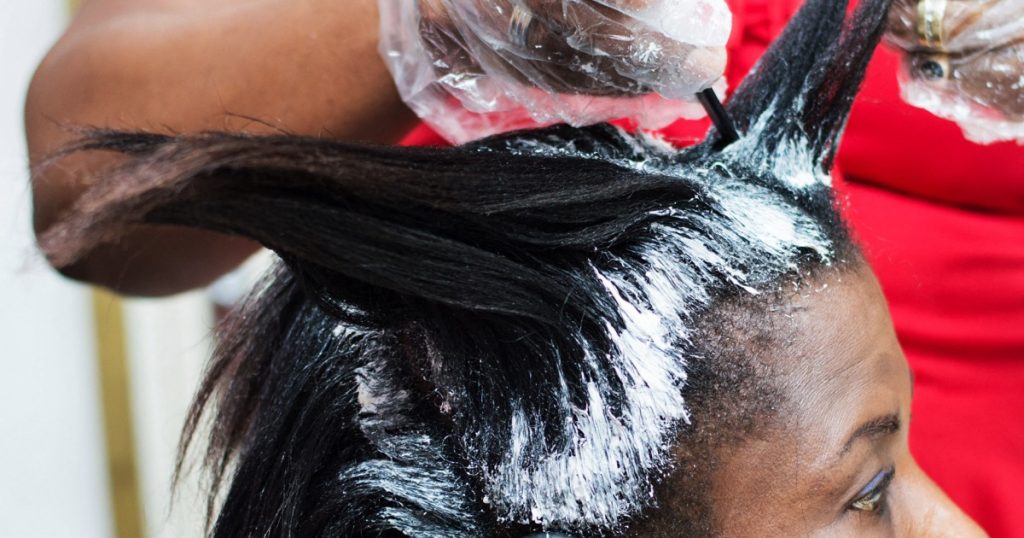The Food and Drug Administration (FDA) has failed to release a proposal to ban formaldehyde in hair-straightening products, despite their own deadline. Studies have found a connection between ingredients in these products and cancer, especially in Black women. A study by the National Institutes of Health in 2022 showed an increase in uterine cancer among Black women who regularly used hair relaxers. Several women have joined class-action lawsuits against major beauty product manufacturers, alleging that the products caused them to develop severe health problems, including uterine cancer. L’Oreal has denied using formaldehyde in their products and stated that they would welcome an FDA ban.
Formaldehyde is a highly toxic substance used in many household products, including some cosmetics. It is linked to certain cancers, and when heated, can be released in some chemical hair-straightening products. According to the FDA, products containing formaldehyde and other formaldehyde-releasing chemicals are associated with short-term and long-term adverse health effects, including an increased risk of cancer. A Harvard T.H. Chan School of Public Health researcher noted that about 50% of products advertised to Black women contain these chemicals, compared to only 7% of products advertised to white women.
Democratic representatives Ayanna Pressley and Shontel Brown have called for more regulation over hair relaxers marketed towards Black women due to health risks. Pressley urged the FDA to finalize the ban on harmful chemicals in hair relaxers, stating that this would be a win for public health, especially for Black women who have been disproportionately affected by systemic racism and anti-Black hair sentiment. Melanie Benesh from the Environmental Working Group described the cosmetics industry as the “Wild, Wild West of regulation,” indicating that the FDA has historically had limited authority over these products compared to foods and drugs.
The FDA has been petitioned by consumer advocacy groups, including the Environmental Working Group, to ban hair products containing formaldehyde, as the agency has the authority to regulate ingredients that make products unsafe for use. The lack of regulation in the cosmetics industry has allowed the use of harmful chemicals in products that pose health risks to consumers. The FDA’s delay in releasing the proposed ban on formaldehyde in hair-straightening products has raised concerns about the agency’s commitment to protecting public health, especially for marginalized communities who are disproportionately affected by the use of these products. The efforts of advocates, lawmakers, and consumer groups to push for stricter regulations on these products highlight the need for stronger oversight and enforcement by regulatory agencies in the cosmetics industry.













